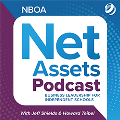Mar 30, 2020, 1:36 PM
(from NBOA) On Friday, March, 27, 2020, a $2 trillion relief package to support the U.S. economy during the COVID-19 pandemic was signed into law. The Coronavirus Aid, Relief and Economic Security Act (CARES Act), will impact large swaths of the U.S., and most of the provisions will take effect immediately. While we don’t yet have all the details, business officers may be interested in the following items, which are listed from the most achievable/firmly understood to most uncertain/subject to interpretation at this time.
The Trump administration has said it aims to launch the small business loans by Friday, April 3.
Find further information about the legislation from Marketwatch; Venable; Liebert, Cassidy, Whitmore; the Society for Human Resource Management; CUPA-HR (higher ed HR); and Nonprofit Quarterly.
Additional resources that may prepare schools to take action include: Loan Toolkit: Payroll Protection, Economic Injury Disaster Loan (blumshapiro), CARES Act: How to Apply for Nonprofit Relief Funds (Independent Sector), Small Business Interruption Loans 7(a) Checklist (Armanino) and Understanding CARES Act Provisions for Retirement Accounts (PlanPILOT).
(from the U.S. Department of Labor) The DOL released additional guidance on the recently passed coronavirus related sick leave act. For additional information, see
NBOA provided this update shortly following passage of the Act: COVID-19 Update: Sick Leave Relief Act Passed.
(from Venable LLP) Independent schools continue to have a number of questions about how to respond to the COVID-19 pandemic, including
(from Inside Higher Ed) For elite colleges, admissions processes may look unchanged, but for most other institutions, the admissions season will likely look different. CarnegieDartlet released a survey of 4,848 high school seniors and found that two-thirds say that a May 1 deadline to reply to an offer of admission was unreasonable. More than half of students said they hoped to make campus visits this spring, either for the first time or visiting their top-choice colleges again. But with COVID-19, students didn’t indicate a significant change in the likelihood that they would choose a college they had never visited. Forty-six percent of respondents said they were “somewhat likely to,” “highly likely to” or “absolutely would” choose a college they had never physically visited.
(From Jen Cort Consulting) Diversity and equity advocates from independent schools have developed resources on providing supportive positive and inclusive campus climates during the COVID-19 crisis. Topics covered include

Listen to the latest episode of the Net Assets podcast.